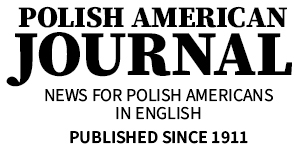EDITORIAL
Poland’s Role as a Human Rights Leader
Reprinted from Culture.pl
Human rights are the foundation of dignity, freedom, and justice – values that transcend borders and time. They are a shield against oppression, ensuring that every individual, regardless of race, gender, or nationality, is treated with respect.
While the concept of human rights can be traced back to early legal traditions, it was the horrors of the 20th century that demanded a formalized global commitment. The Universal Declaration of Human Rights, adopted in 1948, set a precedent, but the fight for equality and justice remains ongoing. Around the world, we continue to witness violations – refugees denied asylum, minorities stripped of their rights, and political dissenters silenced. In this struggle, history reminds us that progress is never given; it is won through resilience, activism, and solidarity.
Poland has played an essential yet often overlooked role in shaping the modern human rights movement. Raphael Lemkin, a Polish-Jewish lawyer, coined the term “genocide” and fought tirelessly to establish legal protections against mass atrocities.
Ludwik Rajchman, another Polish visionary, founded UNICEF, ensuring the rights of children remain a global priority. From the Solidarity movement’s defiance against authoritarian rule to contemporary debates on the rights of refugees at Poland’s borders, the nation’s history is a testament to both the struggle and the responsibility of upholding human dignity.
In recent years, Polish cinema has become a powerful medium for exploring human rights issues, particularly the plight of refugees. Films such as “The Green Border” and “The Silent Twins” challenge viewers to confront uncomfortable truths about exclusion, displacement, and the treatment of marginalized communities. These films serve as a reminder that human rights are not abstract principles but real-life struggles that affect millions. By shedding light on these stories, Polish filmmakers contribute to a larger global conversation, urging us to reflect on our own role in upholding justice and humanity.
Today, as we navigate the complexities of migration, political freedom, and social justice, Poland’s legacy reminds us that defending human rights is not just a duty but a moral imperative – one that defines who we are as a society.
Significant Downturn in Perceptions of Polish–US Relations
Compared to the survey results of two years ago, positive assessments of Polish-U.S. relations have plummeted. They are now virtually fifty percentage points lower (down from 80% to 31%).
At the same time ambivalence has soared (from 14% to 52%) and negative assessments have also markedly risen (from 1% to 10%). These results are hardly better than those noted by CBOS prior to 1989, when Poland, as part of the Warsaw Pact, was subordinate to the USSR and thus hostile to the United States.
Positive ratings of Polish-U.S. relations more often come from men, respondents in the 18-24 age group, those engaging in religious practice more frequently and those with right-wing views.
There are also clear differences between the electorates of different parties. Law and Justice voters are the most upbeat, being the only electorate in which positive assessments dominate, although these are equally high among Confederation sympathizers. Among voters of the ruling coalition, on the other hand, ambivalent responses clearly outnumber positive ones.
More on this subject and other pols at: https://cbos.pl/EN/home/home.php.


